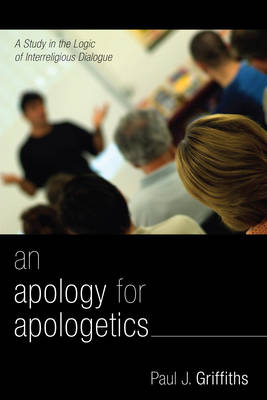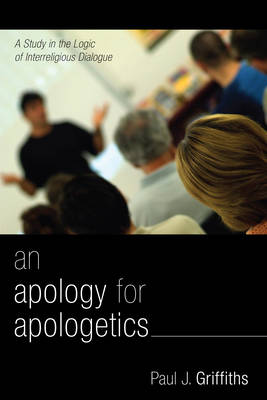
- Afhalen na 1 uur in een winkel met voorraad
- Gratis thuislevering in België vanaf € 30
- Ruim aanbod met 7 miljoen producten
- Afhalen na 1 uur in een winkel met voorraad
- Gratis thuislevering in België vanaf € 30
- Ruim aanbod met 7 miljoen producten
Zoeken
Omschrijving
An Apology for Apologetics argues that a vigorous apologetics is a vital component of any sound effort at interreligious dialogue. Griffiths shows that a spirited defense of each religious tradition must be made by people who are both committed to their ""truth"" and open to serious criticisms by members of other faith traditions. He demonstrates why and how such a recognition of the necessity of interreligious apologetics (the ""NOIA principle"") runs counter to the underlying presuppositions of many proponents of interreligious dialogue. Griffiths raises the specter of an unacceptable price that will be paid if the apologetic enterprise is abandoned. Religious traditions, he shows convincingly, will face relegation to the realm of purely private opinion and religious people will be denied the minimum plausibility they need to engage in public discourse. He argues ultimately that if basic doctrines cannot be defended against alien claims, religious tradition cannot survive. This book will without a doubt stimulate the debate it seeks to introduce: it unapologetically issues a challenge to teacup ecumenists and lazy pluralists. An Apology for Apologetics is for all who are seriously concerned with their own religious communities. It shows how to think about (and communicate with) those whose practices and convictions seem to differ significantly from one's own.
Specificaties
Betrokkenen
- Auteur(s):
- Uitgeverij:
Inhoud
- Aantal bladzijden:
- 126
- Taal:
- Engels
Eigenschappen
- Productcode (EAN):
- 9781556357312
- Verschijningsdatum:
- 1/12/2007
- Uitvoering:
- Paperback
- Formaat:
- Trade paperback (VS)
- Afmetingen:
- 156 mm x 227 mm
- Gewicht:
- 190 g

Alleen bij Standaard Boekhandel
+ 41 punten op je klantenkaart van Standaard Boekhandel
Beoordelingen
We publiceren alleen reviews die voldoen aan de voorwaarden voor reviews. Bekijk onze voorwaarden voor reviews.











